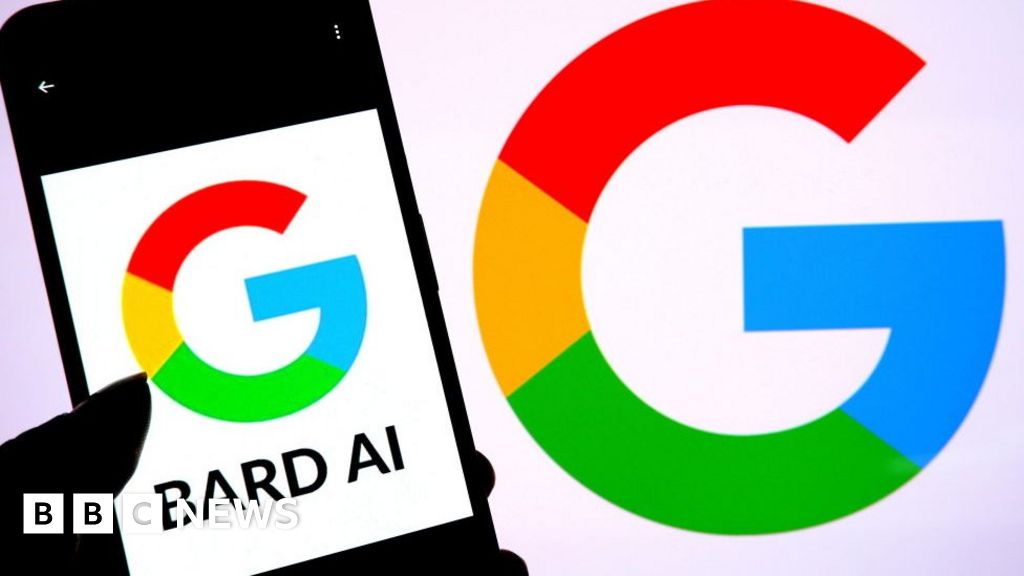|
Getting your Trinity Audio player ready...
|
Google’s parent company Alphabet is expanding the reach of its artificial intelligence chatbot, Bard, into Europe and Brazil, marking its largest expansion since its initial launch in the US and the UK earlier this year. This move intensifies the competition with Microsoft’s ChatGPT, as both AI chatbots are capable of generating human-like responses to user queries.
The rollout of Bard in the European Union faced delays due to concerns raised by the bloc’s main data regulator, the Irish Data Protection Commission. The commission expressed apprehensions regarding the privacy protection measures implemented by the generative AI tool and demanded more information before approving its launch in the EU. Alphabet has since addressed these concerns by engaging with the regulators to provide reassurances regarding transparency, user choice, and control. Users of Bard have the option to opt out of data collection.
During a briefing with journalists, Amar Subramanya, the engineering vice president of Bard, emphasized that the development of Bard is an experimental endeavor undertaken with a commitment to being both bold and responsible. Mr. Subramanya refrained from commenting on potential plans for a Bard app.
Google has also introduced new features for Bard worldwide. These include the chatbot’s ability to speak its answers aloud and respond to prompts that involve images. Google senior product director Jack Krawczyk stated in a blog post that users can now collaborate with Bard in over 40 languages and can modify the tone and style of its responses. Additionally, users can pin or rename conversations, export code to various platforms, and incorporate images into prompts.
The growing interest in generative AI has prompted global tech figures to advocate for a pause in its development. Opinions on AI range from predictions of its potential to bring about the end of humanity to assertions that it can help address climate change, or possibly both. In the past six months, companies have invested billions in the hope of generating substantial advertising and cloud revenue.
Notably, Mistral AI, a startup just one-month-old, secured £86 million in seed funding to develop and train large language models. Elon Musk also announced the establishment of an AI startup called xAI, with a team comprising engineers from OpenAI and Google. Musk has previously called for a pause in AI development and stressed the need for regulation in the sector.
Anthropic, an American AI company, launched its chatbot named Claude 2 as a competitor to ChatGPT. Claude 2 is publicly available in the US and the UK and incorporates a safety method known as “Constitutional AI.” This method involves applying a set of principles to make judgments about the text it produces and aims to summarize large blocks of text.
Despite the buzz surrounding AI chatbots, recent web traffic data suggests a decline in monthly visits and unique visitors to ChatGPT’s website in June, indicating a potential waning of novelty appeal.
In addition to these developments, Google is facing a fresh class action lawsuit in the US, alleging the unauthorized use of user’s personal information to train Bard. The complaint, filed in a San Francisco federal court by eight individuals seeking to represent millions of internet users and copyright holders, argues that Google’s scraping of data from websites violated privacy and property rights.
According to the plaintiffs’ attorney, Ryan Clarkson, Google does not have ownership rights over the internet, users’ creative works, or personal expressions shared online, which include pictures of families and children. The lawsuit raises concerns about the alleged misuse of personal information and emphasizes the need to protect privacy and intellectual property rights in the digital sphere.
The lawsuit against Google highlights the growing concerns about privacy and intellectual property rights in the digital sphere. As AI technologies continue to advance, questions surrounding data usage and ownership become increasingly relevant. The allegations made in the class action lawsuit assert that Google’s unauthorized scraping of data from websites violates both privacy and property rights, suggesting that users have a rightful claim to their personal information and creative works.
This case exemplifies the ongoing tension between the benefits of AI and the potential risks associated with data collection and utilization. While AI chatbots like Bard and ChatGPT offer innovative and convenient solutions, they rely on vast amounts of data to train their models and generate responses. This data often includes user-generated content and personal information shared online, raising concerns about the ownership and protection of such data.
The outcome of this lawsuit could have significant implications for the future of AI development and the responsibilities of tech companies in handling user data. It underscores the need for clear regulations and guidelines to govern the collection, storage, and usage of personal information in AI systems. Striking the right balance between innovation and safeguarding user privacy and intellectual property rights is crucial for ensuring ethical and responsible AI practices.
Governments and regulatory bodies worldwide are grappling with these issues and working towards establishing frameworks to protect individuals’ rights in the digital age. The European Union’s General Data Protection Regulation (GDPR) is one such example of a comprehensive set of rules designed to safeguard personal data and give individuals more control over their information. Similarly, other regions and countries are enacting or considering legislation to address data protection and privacy concerns.
As AI technologies continue to evolve and permeate various aspects of society, it is essential to address these concerns proactively. Stricter regulations, transparent data practices, and mechanisms that empower individuals to have greater control over their data are crucial steps towards ensuring the responsible and ethical development of AI.
The lawsuit against Google serves as a reminder that as AI becomes more integrated into our lives, the protection of privacy and intellectual property rights must remain at the forefront of technological advancements. The outcome of this case and the broader discussions it sparks will shape the future landscape of AI and the extent to which individuals’ rights are respected in the digital realm.



